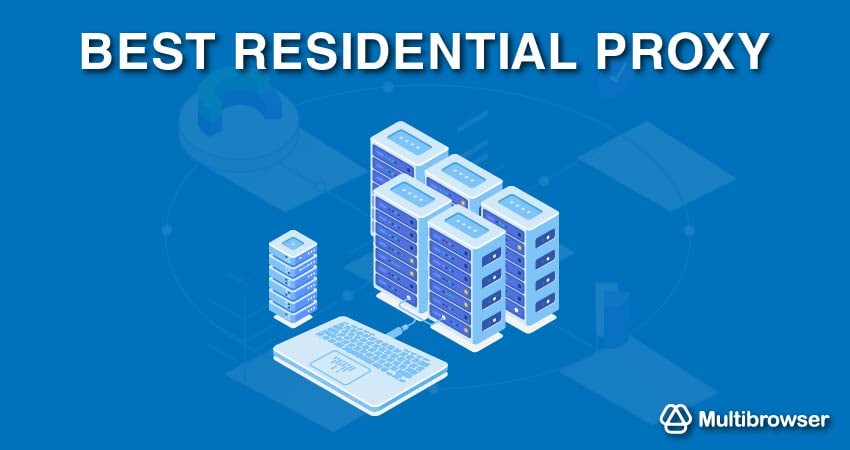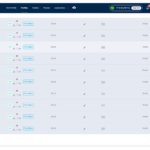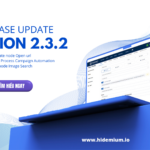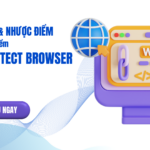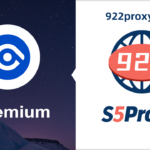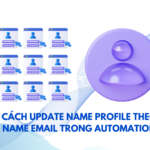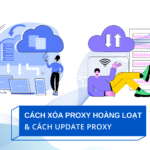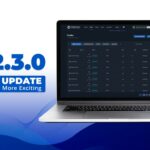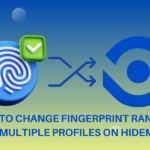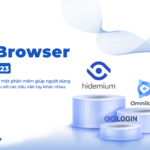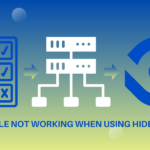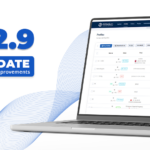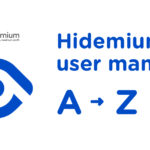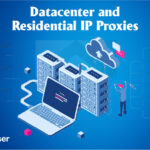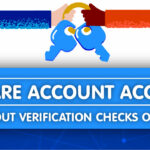Residential proxies enable breathing of browsing software. Residential proxies are more effective at connecting you than data center proxies since they originate from actual devices. Reading this post right now if you’re unsure about the circumstances under which and from whom to get a residential proxy.
What is a residential proxy?
- Proxies are more difficult to identify than datacenter IPs because they are taken from laptops, mobile phones, and other WiFi-connected devices belonging to actual users.
- Offers more precise targeting choices and supports multiple locations.
- Millions of IPs make up a residential proxy network, but not all of them are always accessible because users can turn off their devices at any time.
- The majority of them share residential IPs and eventually have to change. For dedicated addresses, you can think about using an IPS proxy.
- Residential proxies’ unique qualities in comparison to others.
In what situations do residential proxies replace datacenter IPs?
1. The platform you’re trying to access is heavily guarded:
- Hacking websites and fare aggregators are only two examples of websites that use IP reputation as their first line of defense against bot traffic. Residential IPs are registered with service providers.
- Consumer internet reviews ought to be positive.
2. Need for broad coverage
Residential arrivals, which come from millions of people globally, support more locations than a data center. As a result, they are a wise choice for tasks like software localization, ad verification, and data collection for SEO.
3. Do you wish to browse entirely anonymously?
Residential proxies make you appear to be a genuine person when browsing if the VPN and data center IP only mask your identity and not the reality you are utilizing.
Top 6 residential proxies available now
Smartproxy
– Featured:
- Proxies: 40 million IPs every month
- HTTP protocol (S)
- Location: 195 with targeting for nation, state, and city
- Rotation: 10, 30, or on demand
- API, browser extensions, browser anti-detection, and extension documentation are also available.
- Support: 24/7, excellent via email or chat
- Price: $12.5 per GB, with a 3-day refund policy
– Advantages:
- A pioneer in performance balancing
- Good value
- Ample features for the majority of tasks
- Excellent customer service, a wealth of lessons, and control tools
– Defect:
- Does not support SOCKS5 is a flaw.
- Few possibilities for targeting
Luminati Network – Bright Data
– Featured:
- Proxies: 72 million IPs every month
- Protocols: SOCKS5 and HTTP(S).
- Targeting any nation, city, ASN, and carrier
- Rotation: Any request, individualized fixed sessions
- Additional: documentation for the Proxy Manager, API, and browser extensions
- Live chat available round-the-clock, ticket ordering, and specific account management
- Price: One GB starts at $15.
– Advantages:
- The biggest proxy vendor available
- A large number of IPs rotating globally provides a variety of capabilities and permits ASN. targeting.
- Excellent performance with strong proxy management tools
– Defect:
- Focus should be primarily on business audiences. Due to its complexity, it will not be ideal for individuals or beginners.
- A few gray hat use cases are controlled by strict KYC procedures.
Oxylabs can be Bright data alternative
– Featured:
- Proxies: 100 million IPs every month
- HTTP protocol (S)
- Any country, thousands of cities, and the aim ASN
- Rotation: any request; a 30-minute fixed session
- Documentation for APIs, browser extensions, and extensions
- 24/7 assistance, live chat, personal account manager
- Price: $15/GB, 7-day free trial for companies, 3-day money-back guarantee for people
– Advantages:
- Covers all nations and the majority of global cities
- Excellent scalability, stability, and top performance
- There is a dedicated account manager and operational guidance available.
– Defect:
- Inappropriate for novices and personal use
- Quite pricey
SOAX
– Featured:
- Proxy group: 5,000,000 IPs each month
- Protocol: SOCKS5 over HTTP(S)
- 100+ locations with country, city, and ASN.
- rotation: from 90 to the maximum duration possible (with customization options)
- Additional: Restricted node and API access (direct connection to one IP)
- 24/7 customer service via live chat and ticket ordering
- Cost: $99 for 8GB ($12.38 per GB), and 300 ports. a $1.99 trial period
– Advantages:
- Numerous, around 5 million residential proxies
- Similar to Smartproxy Flexible 2 in terms of price and offering rotation and targeting
- Smart targeting enables not only nation but also area, city, and ASN specification.
- Proxy works admirably, albeit slowly.
– Defect:
- This proxy is quite rudimentary, and several of the functionality offered by SOAX, such as HTTP(S) traffic over SOCKS5, a needed list of permitted IP addresses, and packet port restrictions, raise concerns.
NetNut
– Featured:
- Proxies: 10 million IPs every month
- HTTP protocol (S)
- 150+ countries with country-specific targeting
- Alternatives include every request or as long as IP is accessible.
- API (for resellers), supplemental documentation
- 24 hour support via Skype and email (larger packages)
- Cost: $20 for 1 GB ($20/GB). 7-day risk-free trial offered
– Advantages:
- Get different residential proxies with traffic as little as 1GB, along with static residential proxies.
- Good results but still lagging behind industry titans like Bright Data and Oxylabs
– Defect:
- Problem: Not the best and simplest solution for a complex proxy use case.
- Features like API access and Skype support are restricted to more affordable options.
GeoSurf
– Featured:
- HTTP Proxy Pool: 2.5 million IPs per month (S)
- Location: There are over 1700 cities spread over over 100 nations.
- Rotation: each request, with a predetermined session length of 1/10/30 minutes.
- Documentation for APIs, browser extensions, and extensions
- 24/7 assistance through Skype or email
- Pricing: $300/20 GB ($15/GB), offered as a sample
– Advantages:
- Prioritize quality over number, with 2.5 million IPs selected from tier 1 nations and significant consumer ISPs.
- numerous rotation settings, extensive location coverage to over 1000 cities
- To make the work simpler, there exist APIs and browser plugins.
– Defect:
- High price
- A small proxy pool could expose you to malicious IPs.
Updating…
